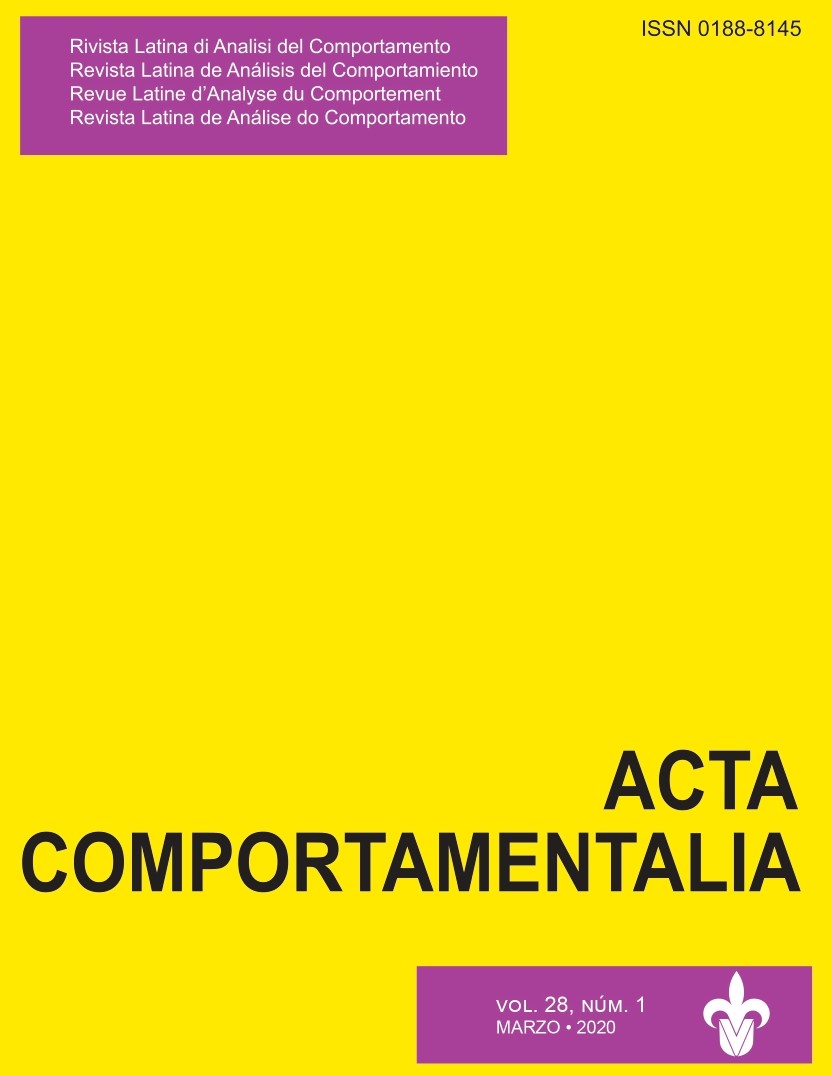Tinnitus: uma conceituação analítico-comportamental
DOI:
https://doi.org/10.32870/ac.v28i1.75184Palabras clave:
Tinnitus, Tinnitus management, verbal processes, behavior analysis, applied behavior analysis.Resumen
Tinnitus, sometimes called psychogenic sound, is a symptom that affects between 10 to 14% of the adult population and can be debilitating. Without an effective biological treatment, Tinnitus has been mainly managed by psychological therapies that aim at removing or decreasing the suffering brought about by the sound. This paper revisits the Tinnitus Retraining Therapy (TRT) from the standpoint of Behavior Analysis offering a behavior analytic conceptualization of this problem. The behavior analytic management of Tinnitus proposed aims at removing or decreasing the suffering brought about by the sound. It focuses in function-altering verbal processes supported by some technical resources of the Applied Behavior Analysis: modelling and shaping of the client ́s verbal behavior, systematic desensibilazation and clinical management of the self-report ́s data. A short presentation of a clinical case with essential data is offered to illustrate the intervention. These data show a reduction of the frequency of the more annoying intensity of the sound perceived from 17-23 occurrences in the pretreatment measures to 0-7 in the interval between the two last sessions (1 session per week, 8 sessions). The data suggest that a behavior-analytic oriented intervention may have the potential to achieve rapid and effective results for Tinnitus management. Besides, it offers a parsimonious and naturalistic interpretation of Tinnitus that may guide a clearer and more precise clinical intervention.
Descargas
Descargas
Publicado
Cómo citar
Número
Sección
Licencia

<a rel="license" href="http://creativecommons.org/licenses/by-nc-sa/4.0/"><img alt="Licencia de Creative Commons" style="border-width:0" src="https://i.creativecommons.org/l/by-nc-sa/4.0/88x31.png" /></a><br />Este obra está bajo una <a rel="license" href="http://creativecommons.org/licenses/by-nc-sa/4.0/">licencia de Creative Commons Reconocimiento-NoComercial-CompartirIgual 4.0 Internacional</a>.






